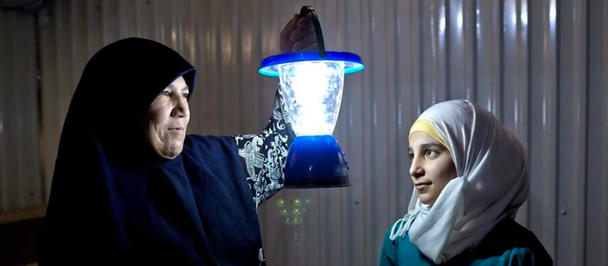From dream to dream
August 23, 2022

We are excited to continue to share the stories of participants in our “support for youth and entrepreneurship for social cohesion, peace and sustainable development” project. Meergul Karakozueva's story is about a combination of entrepreneurial spirit, love of life and determination.
Where it all began
All people have their own dream, special and unique. For some it changes over time, for others it stays for life. I dreamed of getting an education at prestigious universities around the world, I studied well and paid special attention to the study of English. But when I was 12 years old, I got meningitis and soon I lost my hearing. But that didn't stop me from moving forward. After graduating from school, I entered Osh State University Faculty of Business and Management and graduated with a degree in Business Management.
I wanted to open my own business and was searching for a long time. One day in 2014, I found the surfing community on the Internet and joined it. I am grateful to my first guest who helped me understand the hostel system. Initially I opened a hostel in the center of town. The hostel was 6 rooms with 22 beds at a cost of 300-500 soms per place. In addition to the hostel, I planned to open a mini-hotel with good conditions and excellent service, but for a long time I could not find a place. In June 2020 a building in the center of the city became available. I managed to come fo an agreement with the landlord for a long-term lease until 2027. The cost of rent is 50,000 soms per month. With the help of UNDP grant funds and my own contribution, I managed to reconstruct the building and the mini-hotel opened in January 2021. Despite fears that the effects of COVID-19 would negatively affect the number of guests, the mini-hotel services gradually became in demand.
The initial financial support from UNDP was used to buy coffee tables and bedding (bed sets, mattresses and blankets) for the hostel.
And in the second round with the grant we launched a mini-hotel. Rooms were renovated and bathroom fixtures, mattresses, doors, locks, outlets, bath accessories, hair dryers, and curtains were purchased. It was no longer a hostel, but a mini-hotel.
In the third round, part of the grant went to the purchase of showers, beds, and bedside tables. And the second part of the grant was also used to buy photos and to partially decorate the place.
Grants were not given in cash, but instead we received building materials, equipment and other materials according to my application.
Thanks to UNDP's support, I reached a new level of development, I became much more confident, more stable. I got one of the important life lessons - to work for quality. To date, I have managed to create 10 jobs, of which 5 are youth, 3 women are maids, 1 cook and me.
The grant helped me to continue working steadily. I try to invest in the development of my business the profits I make. I plan to decorate the yurt with Kyrgyz folk costumes and put women's and men's folk costumes in it so that tourists can see it and have their pictures taken. I also plan to promote the national cuisine at the request of tourists.
I am often invited as a speaker who has achieved success in the hospitality industry in spite of my hearing impairment. Also, parents with children with disabilities call me and come and ask to speak to their children, give me hope, and tell me how I achieved my successes. I also advise entrepreneurs and startups. They are interested in my experiences, lessons learned, mobilizing and activating inner strengths and resources.
Now I have a treasured dream - to buy the land and open an inclusive hotel with all the amenities and comfortable rooms designed with people with disabilities in mind. I believe that I will succeed and I am doing my best to do so.
***
Mergul Karakozueva's hotel business financing is one of a number of socio-economic initiatives made possible by the UNDP project "Strengthening Community Resilience and Regional Cooperation to Prevent Violent Extremism in Central Asia," with financial support from the Government of Japan and advisory support from business accelerator John Galt.

 Locations
Locations



